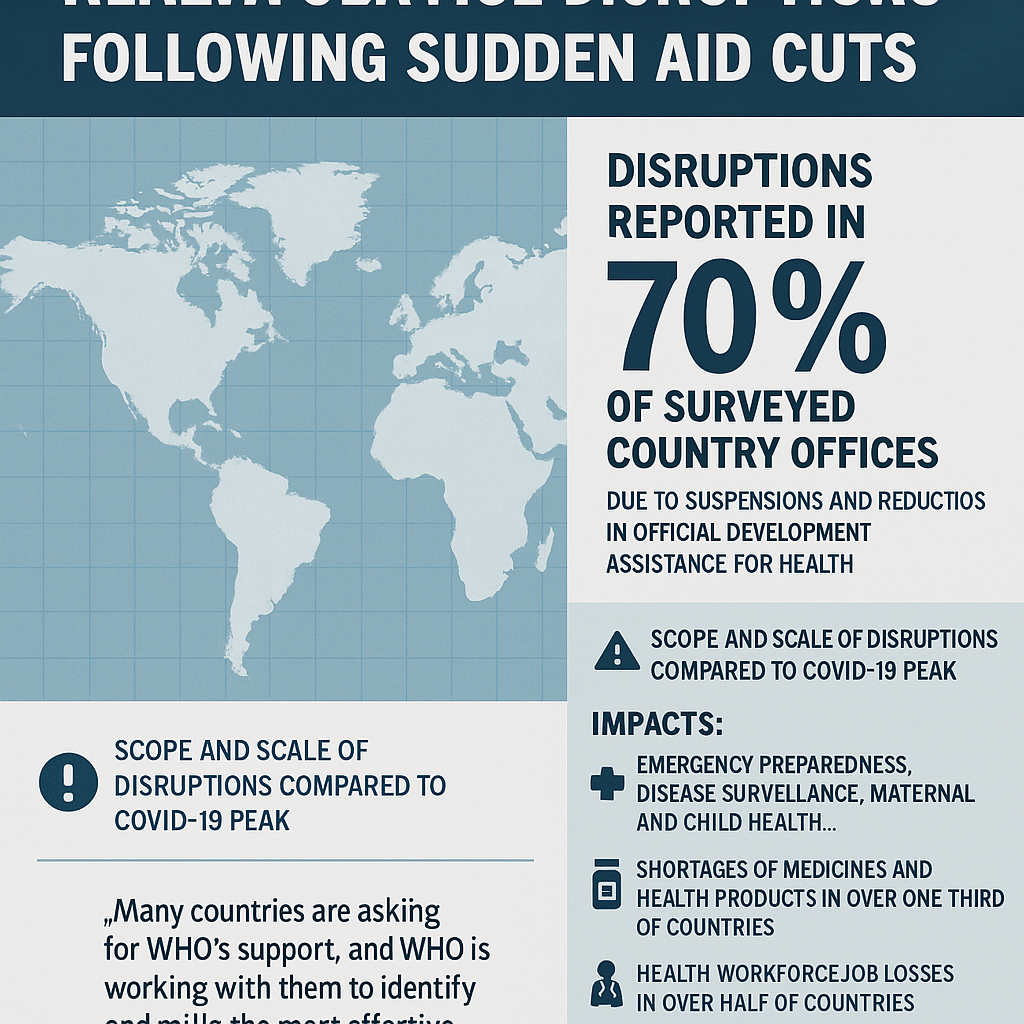By Bunmi Yekini

The World Health Organization (WHO) has sounded the alarm over widespread health service disruptions across the globe following sudden cuts and suspensions in official development assistance (ODA) for health, particularly in low- and lower-middle-income countries.
In a rapid assessment carried out in March and April 2025, 70% of WHO’s 108 country offices reported significant interruptions in health system functions. The survey reveals alarming consequences for health services, including emergency preparedness, disease surveillance, and maternal and child health, among others.
“These results paint a worrying picture about the impact of the sudden and unplanned cuts to aid on the health of millions of people,” said WHO Director-General Dr Tedros Adhanom Ghebreyesus. “Although these cuts are a shock, they are also driving an accelerated transition away from aid dependency to a more sustainable self-reliance, based on domestic resources.”
Despite efforts by many governments to reallocate domestic funds or seek alternative financing, WHO found that in 24% of the countries surveyed, budget shortfalls are already leading to increased out-of-pocket health expenses for citizens—placing the heaviest burden on the poor and vulnerable.
The WHO noted that the scope and scale of the current disruptions are comparable to those witnessed during the peak of the COVID-19 pandemic. Critical areas such as malaria, HIV, tuberculosis, family planning, and outbreak detection are all severely affected.
In over one-third of the surveyed countries, health systems are running dangerously low on essential medicines and health products. Over half reported job losses in the health workforce and disruptions to training programs, threatening long-term system resilience.
Information systems are also suffering, with more than 40% of countries reporting breaks in data collection and disease surveillance operations, including lab and emergency reporting systems.
“This is not just a health crisis, it’s a call to action,” Dr Tedros emphasized. “Many countries are asking for WHO’s support, and WHO is working with them to identify and tailor the most effective measures.”
The WHO says it will continue to monitor the situation closely while engaging international partners and donors to guide urgent response plans and prevent the collapse of already strained health systems.
Eighty-one WHO country offices have already requested technical support, resource mobilization, and innovative financing options to weather the crisis.
